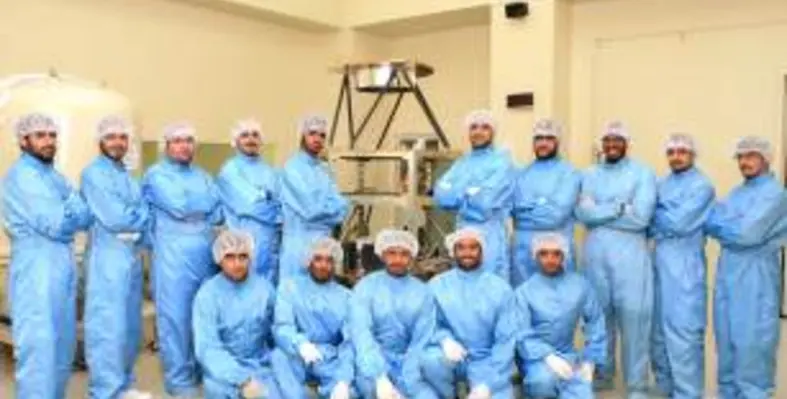The Emirates Institution for Advanced Science and Technology (EIAST) has completed the design of KhalifaSat, the first satellite that to have been designed and constructed by Emirati engineers in the UAE
EIAST has planned to develop several new technologies to achieve the expectations of the satellite, further revealing that the full engineering model of the satellite and a mock-up mechanical model will be expected to be manufactured in the next phase of designs. The manufacturing of the actual flight model of the satellite will follow, which is expected to be launched into space in 2017.
Yousuf Al Shaibani, director general of EIAST, said, ?KhalifaSat is a milestone for EIAST as well as for the UAE. It will be an assessment of our capabilities in satellite manufacturing, helping us position ourselves as leaders in satellite development and technology regionally and internationally. Yousuf Al Shaibani, director general of EIAST, said, ?KhalifaSat is a milestone for EIAST as well as for the UAE. It will be an assessment of our capabilities in satellite manufacturing, helping us position ourselves as leaders in satellite development and technology regionally and internationally. A recent design review meeting provided an occasion to evaluate the progress made so far in projects related to the Emirati-designed and built satellites. We are delighted that this progress is as per our timeline and results have exceeded expectations."
Eng. Amer Al Sayegh, director of the Space Systems Development Department at EIAST and KhalifaSat project manager, said, ?The team has developed new satellite software that can be used in future satellite projects. We are in the process of finalising the mock-up model of KhalifaSat, which will have a bus similar to that of DubiSat-2, but with an improved mechanical structure that will house a more developed camera.
?The technologies for KhalifaSat were improved by 30 per cent compared to DubaiSat-2, including a highly sophisticated camera system, which will image at a resolution of 70 cm, more storage capacity, faster download speed, and better computing capabilities,? he added.
EIAST was set up by the Dubai government in 2006 to promote scientific innovation. It aim is to improve technological progress in the Middle East and build on the scientific skills and knowledge of Emiratis. EIAST?s focus includes outer space research and development, satellite manufacturing and systems development, and ground station support for satellites.







